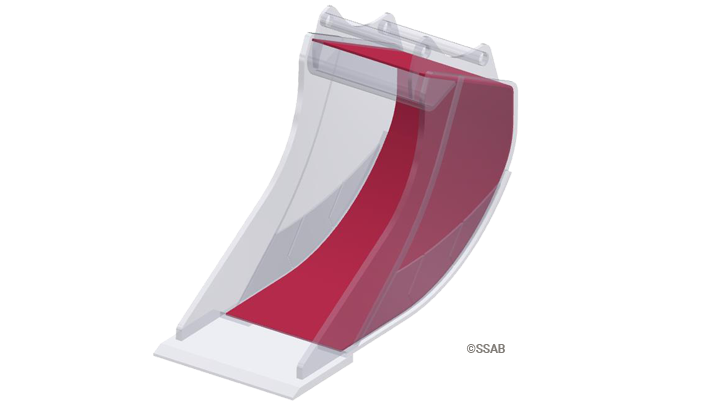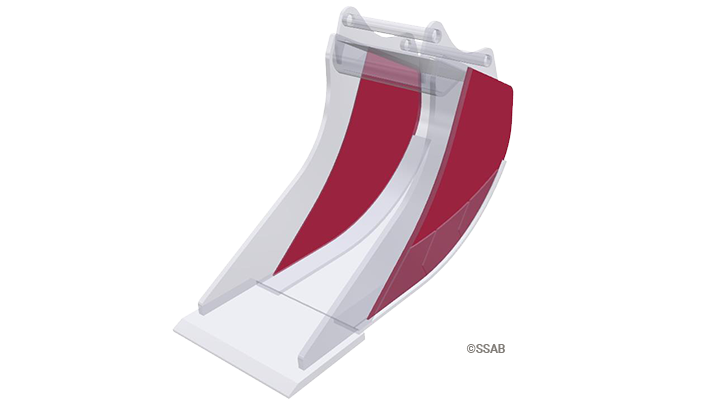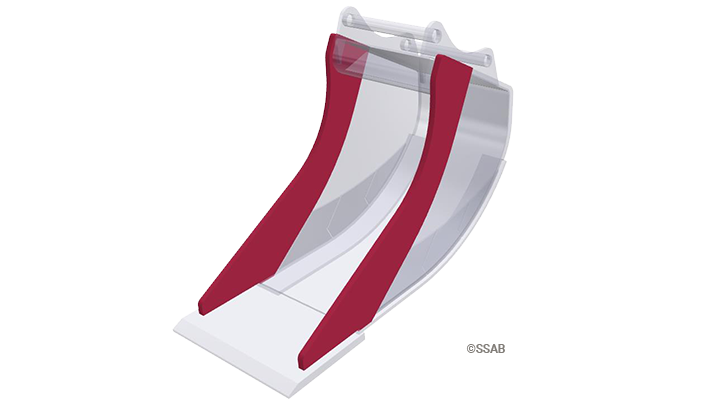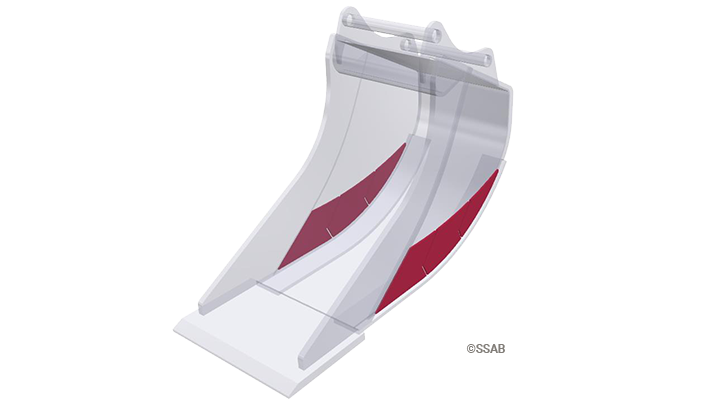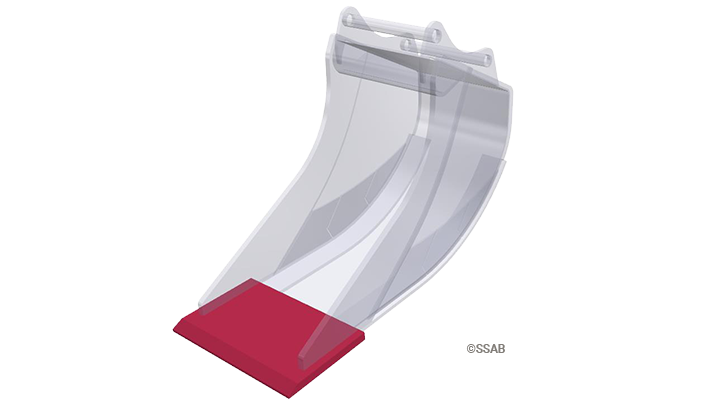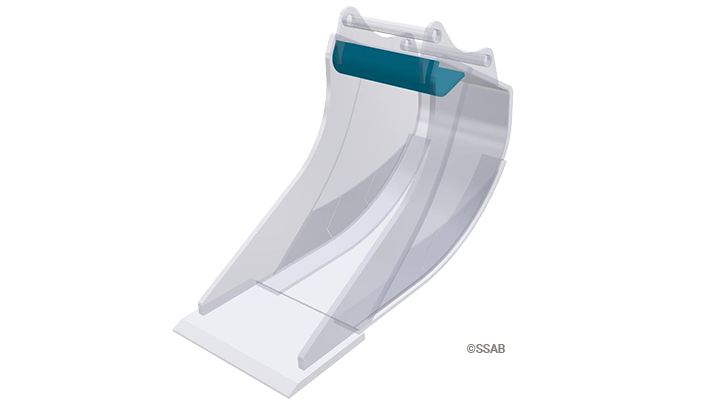


Cable buckets are traditionally made of 400 or 450 Brinell hardness steel or even softer steel. The development of Hardox® 500 Tuf wear steel enables the use of even harder steel in a large part of the bucket. Hardox® 500 Tuf has a hardness of approximately 500 HBW. The higher strength enables thinner steel components and lighter buckets. This means the bucket can be used for heavier scoops and higher productivity. Higher hardness results in a longer service life, as shown in the graph. This guide gives examples and recommendations of how and where to use Hardox® wear plate.
1. Shell plate
Recommended steel: Hardox® 500 Tuf.
The shell plate is the component with the greatest impact on lifespan, capacity and weight. It will benefit from the high hardness and high yield strength of Hardox® 500 Tuf. As the shell plate is a large component, it is an important candidate for weight saving. In most cases, Hardox® 500 Tuf enables a reduction in both thickness and weight, while prolonging the wear life.
2. Side plates
3. Side cutters
Recommended steel: Hardox® 500 or Hardox® 450.
The side cutters are, like the cutting edge, heavily subjected to sliding wear under high pressure. In addition, to cut into the dug material, the side cutters also protect important structural parts. We recommend using Hardox® 500 or Hardox® 450 in these areas.
4. Lower side wear plates
Recommended steel: Hardox® 500 or Hardox® 450.
The side cutters are, like the cutting edge, heavily subjected to sliding wear under high pressure. In addition, to cut into the dug material, the side cutters also protect important structural parts. We recommend using Hardox® 500 or Hardox® 450 in these areas.
5. Cutting edge
The information in this report is only applicable to SSAB’s products and should not be applied to any other products than original SSAB products.
This report provides general results and recommendations for SSAB steel products. This report is subject to SSAB’s Terms of Use. It shall be the user's responsibility to verify that the information contained herein is correct and is suitable to be used for the particular purpose and application of the user. The report is intended to be used by professional users only who possess adequate expertise, qualification and knowledge for the safe and correct use of the results and recommendations in this report. This report is provided “as is”. The use of the report is at user’s own discretion and risk and that users will be solely responsible for any use of this report. SSAB disclaims any liability for the content or potential errors of this report, including but not limited to warranties and condition of merchantability or fitness for a particular purpose or suitability for individual applications. SSAB shall not be liable for any kind of direct or indirect damages and/or costs related to or arising therefrom, whether special, incidental, consequential or directly or indirectly related to the use of, or the inability to use, the report or the content, information or results included therein.

